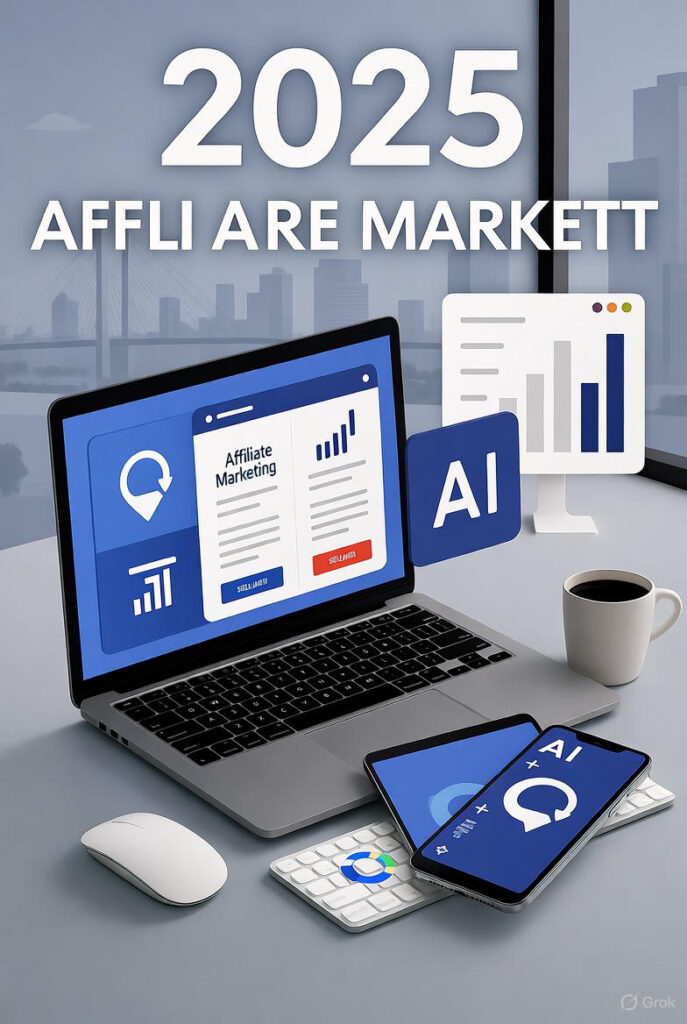The Affiliate World in 2025 Is Changing Fast
The affiliate industry is evolving at a record pace. In 2025, marketers are seeing major shifts in how data, technology, and content intersect. With the rise of AI automation, privacy-first tracking, and new payment models, affiliates must adapt quickly to stay competitive.
Brands are focusing more on authentic partnerships and less on raw traffic. Meanwhile, publishers are diversifying beyond blogs — expanding into TikTok, YouTube Shorts, and newsletters. Let’s dive into the most important updates shaping affiliate marketing right now.
1. The Rise of AI-Powered Affiliate Tools
Artificial Intelligence has officially gone mainstream in affiliate marketing. Networks and affiliates alike are using AI to:
- Analyze which products perform best for a given audience.
- Generate high-quality ad creatives, social posts, and email campaigns.
- Automate content translation for international traffic.
- Detect fraud or click manipulation in real time.
Platforms like Impact, Awin, and PartnerStack have started integrating AI dashboards that recommend top-converting offers based on your site’s analytics.
Even smaller affiliates are using AI writing assistants to create SEO content faster. The message is clear: AI is no longer optional — it’s an essential productivity tool.
2. Cookie-Less Tracking Is Here
One of the biggest changes in 2025 is the near-end of third-party cookies. Google Chrome’s phase-out finally took full effect this year, forcing advertisers and affiliates to adapt.
To ensure accurate conversions, networks are moving toward:
- Server-to-Server (S2S) Tracking — a direct and privacy-safe way to record conversions.
- First-Party Data Models — using on-site analytics and consent-based tracking.
- Cookieless Attribution Tools — like fingerprinting and postback methods.
This shift means affiliates must now optimize for transparency and work closely with advertisers who support compliant tracking systems.
3. Micro-Influencers Are Redefining Affiliate Partnerships
In 2025, influencer and affiliate marketing have officially merged. Instead of relying solely on big publishers, brands are partnering with micro-influencers (1K–50K followers) who have loyal, niche audiences.
These influencers promote affiliate products via social content, stories, or live shopping streams — often converting far better than traditional ads.
This trend has given rise to creator-affiliate hybrid programs, where influencers earn both a fixed fee for content and a performance-based commission for sales. Platforms like TikTok Shop and Instagram Affiliate Hub are leading this transformation.
4. Subscription & Recurring Revenue Models Dominate
A major news trend in affiliate marketing is the rise of recurring commissions. SaaS and subscription-based businesses now reward affiliates not only for the first sale but for every monthly renewal.
This model turns one-time traffic into long-term passive income, aligning incentives between the affiliate and advertiser. Popular niches include:
- Software & productivity tools (e.g., Notion, Canva, Grammarly)
- Membership communities & e-learning platforms
- Health subscriptions & meal plans
Affiliates are shifting their focus toward lifetime value (LTV) rather than short-term clicks.
5. Compliance & Privacy Updates Tighten Up
As affiliate marketing grows, regulators are tightening data and disclosure laws. In 2025:
- The EU Digital Markets Act (DMA) and U.S. Privacy Rights Act enforce stricter consent rules.
- Affiliates must disclose paid links clearly across all media, including social platforms.
- Ad networks are required to implement GDPR-compliant tracking solutions.
This means affiliates must stay educated on legal changes and ensure transparency with their audience. Failing to do so can result in account bans or fines.
6. AI Fraud Detection Protects Campaigns
Ad fraud remains a challenge — from fake leads to bot traffic. Fortunately, AI tools are improving fraud prevention.
Networks now use behavior-based detection to analyze clicks, time on page, and user patterns. If a publisher sends suspicious traffic, it’s flagged instantly.
These technologies are helping keep affiliate programs cleaner and more profitable for everyone.
7. New Affiliate Niches Emerging in 2025
Several fast-growing niches are taking center stage this year:
- Green Tech & Sustainability Products
- AI Productivity Tools
- Crypto & FinTech Education
- Home Automation & Smart Living
- Wellness & Mental Health Apps
Each of these sectors benefits from strong consumer demand and high payouts, making them attractive for new affiliates.
Conclusion: The Future of Affiliate Marketing Is Smarter, Cleaner, and More Transparent
2025 marks a turning point for affiliate marketing. AI tools are transforming how affiliates work, cookie-less tracking is changing how conversions are counted, and compliance is reshaping the rules of engagement.
The affiliates who will thrive are those who embrace automation, respect privacy, and focus on long-term partnerships.
Affiliate marketing isn’t dying — it’s evolving into a more intelligent, transparent, and data-driven ecosystem.
If you stay informed and adapt early, this new era could be your most profitable yet.
